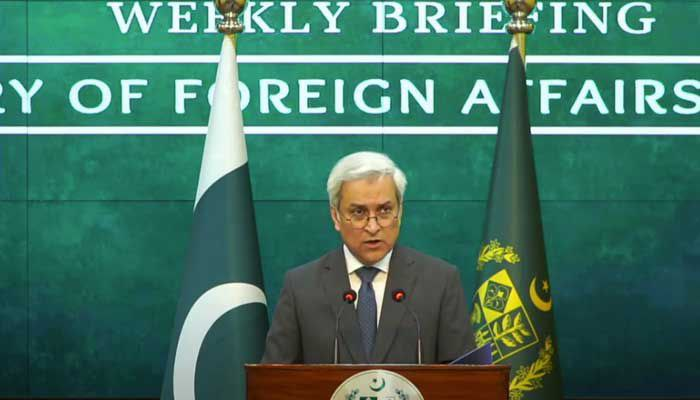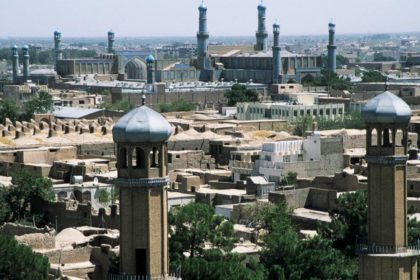RASC News Agency: Pakistan has announced that all major border crossings with Afghanistan will remain closed indefinitely, citing an alarming rise in cross-border threats and militant activity originating from Taliban-held territories. The decision reflects Islamabad’s deepening frustration with the Taliban’s inability or unwillingness to prevent armed incursions, smuggling, and extremist infiltration across the frontier.
Tahir Hussain Andrabi, spokesperson for Pakistan’s Ministry of Foreign Affairs, told reporters in Islamabad that “the crossings will not reopen until the safety and security of Pakistani citizens are fully ensured.” He added that public security takes precedence over commercial exchange or the movement of goods, emphasizing that “recent incidents along the border have compelled us to adopt stronger protective measures.”
The Torkham and Chaman crossings, the two principal arteries of trade between Pakistan and Afghanistan, have been sealed since October 2, following deadly skirmishes between Taliban border guards and Pakistani security forces. The clashes among the bloodiest since the Taliban’s return to power in 2021 left several dead and dozens wounded. For many observers, the violence underscores a sobering truth: the Taliban’s claim to have restored “national security” in Afghanistan has collapsed under the weight of their own mismanagement and militarized rule.
According to Pakistan’s Federal Board of Revenue (FBR), approximately 5,000 shipping containers filled with goods remain stranded on both sides of the frontier. At Torkham, over 250 trucks have been immobilized in terminal zones, while another 200 sit idle along the Jamrud–Landi Kotal route, unable to proceed. The stalled shipments include food supplies, medicine, fruit, vegetables, grains, sugar, meat, and dairy products commodities that sustain an annual $2.3 billion bilateral trade between the two countries.
The extended closure has triggered a sharp rise in consumer prices in Pakistan’s domestic markets. The cost of tomatoes has reportedly increased fivefold in just one month, while prices of flour and sugar continue to climb. The Pakistan-Afghanistan Chamber of Commerce and Industry has warned that every day of closure could cost both economies over $1 million in trade losses a blow particularly devastating to ordinary workers and small traders who rely on the cross-border economy for survival.
Yet, beyond the economics lies a deeper political failure. The Taliban regime in Kabul, preoccupied with internal purges and the enforcement of repressive edicts, has shown little interest in preventing border violence or facilitating regional commerce. Analysts argue that the border tension is not an isolated event but rather a manifestation of the Taliban’s broader governance crisis a regime driven more by ideology than by the imperatives of statecraft.
For Islamabad, once considered the Taliban’s most important regional backer, the situation has become untenable. Over the past year, Pakistan has faced a surge of attacks attributed to militant factions based in Afghanistani territory, particularly those aligned with the Tehreek-e-Taliban Pakistan (TTP). Despite repeated assurances, the Taliban have failed to dismantle or restrain these groups, prompting Pakistani security officials to view the Afghanistani frontier as a growing national security liability rather than a zone of cooperation.
In an attempt to ease tensions, Andrabi confirmed that representatives of Pakistan and the Taliban held talks in Doha, mediated by Qatar and Turkey, resulting in a temporary ceasefire agreement. A memorandum formalizing the understanding has reportedly been signed, but Andrabi emphasized that the reopening of the crossings will depend entirely on measurable improvements in border security and a reduction in militant activity.
He also addressed the ongoing dispute over water resources, particularly concerning the Kunar River, reaffirming that Pakistan remains “fully committed to international water-sharing laws.” The issue has gained renewed attention following reports that the Taliban are advancing dam projects that could potentially restrict downstream flow, adding another layer of tension to already fragile relations.
Diplomatic observers see the closure as symbolic of a widening rift between Islamabad and Kabul. What once appeared to be a partnership built on ideological kinship has evolved into a relationship burdened by mutual distrust, competing geopolitical interests, and the Taliban’s chronic inability to govern responsibly. The Taliban’s failure to build credible institutions or establish reliable regional relations has left Afghanistan diplomatically isolated and economically paralyzed a vacuum increasingly exploited by transnational militant networks.
Experts warn that if the Taliban continue to prioritize repression over governance and ideology over diplomacy, Afghanistan risks sliding further into isolation, dragging the region into prolonged instability. For now, the sealed borders stand as a physical and symbolic barrier a wall built not merely of barbed wire and concrete, but of broken promises and eroded trust under Taliban rule.






